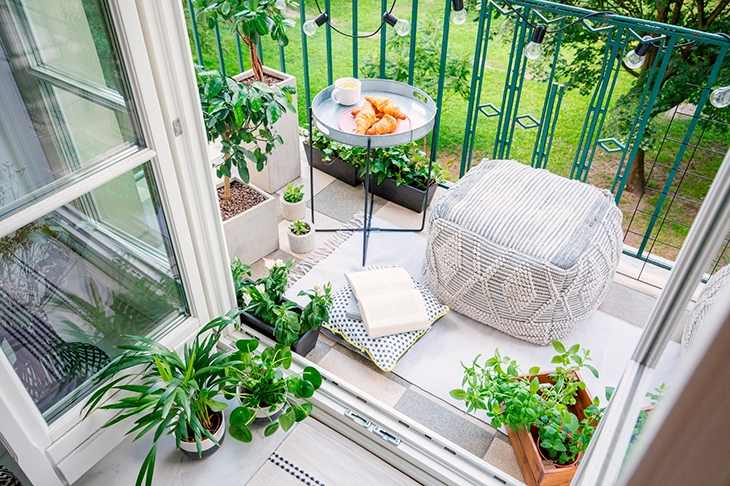The closing of churches
Sir: Stephen Hazell-Smith is quite right in writing that churches should re-open (Letters, 18 April), however the issue is now more fundamental. Recent weeks have demonstrated a crisis of leadership in almost every aspect of national life, excluding the Queen, who has exercised a spiritual leadership made necessary by the failure of bishops. The closing of churches may be seen as a defining moment in the life of the Church of England. As the Archbishop of Canterbury broadcast from his kitchen on Easter Day, impervious to the damage his ‘leadership’ has caused, many Anglican clergy and people I know looked to the image of the Pope in an almost empty St Peter’s, and saw the true image of Christian service.
In the meantime the 75th anniversary of VE Day falls next month. It should be unthinkable that the war memorials of England should remain unvisited in locked churches. To celebrate our freedom, the issue of closed churches is now more than what Justin Welby suggests.
The Revd David Ackerman
The Parish of St John the Evangelist at Kensal Green, London W10
A tiny patch
Sir: In response to Melanie McDonagh’s article about the have-gardens and the have-nots (‘Lie of the land’, 18 April), I would like to raise a defiant flag for us supposedly poor souls locking down in tower blocks. I write this from a one-bedroom flat on a council estate in south London, which I share with my partner. It is a squeeze (the emergency tins are stacked in the coat cupboard). But I have never relished my balcony garden more. Five metres long, one-and-a-half across and surrounded by those of my neighbours, it has become a green oasis over the years.
I am lucky: not all flats come with balconies. Some don’t even have window boxes. But this lockdown has encouraged those without outdoor space to bring in what nature they can: microgreens and even lettuce can be grown on a kitchen windowsill. Plenty of communal areas — including on my own estate — are filled with pots of colour for everyone to enjoy. In supermarkets, seasonal annuals are creeping in: £2 will buy you something cheery and flowering to keep somewhere bright. One can moan about the lack of space, or make the best of what you have. When it comes to gardening, plenty do.
Alice Vincent (author of Rootbound, Rewilding a Life, Canongate)
London SE23
Africa waits
Sir: Thanks to an inconsistent postal service between the UK and Botswana, I only recently received the 15 February issue. The world it discussed bore precious little resemblance to the one we inhabit now. The editorial is about HS2. Remember that? Portrait of the Week included one paragraph covering a group of 93 people quarantined in the Wirral and 105 in Milton Keynes. A salesman from Hove had just travelled back from Singapore via a French ski resort, where he had infected 11 people.
No one could have known then what was just around the corner. I wonder if there has ever in peace time been a nine-week period during which the world has changed so dramatically.
Ironically, we in Botswana are more or less where the UK was on 15 February in respect of this saga. With 15 confirmed cases including one fatality, we still have it all to look forward to — with much of the population living in cramped and congested conditions, and few intensive care beds. With all international aid having evaporated, we in the third world will almost certainly have to live or die on our own personal resources. There are many millions of people in Africa. Barring an affordable and mass-produced miracle vaccination, watch this very large space…
Mike Ward
Gaborone, Botswana
Still swimming
Sir: I was inspired to read that A.S.H. Smyth decided to ‘climb’ Sri Lanka’s most famous mountain by going up a meticulously calculated number of stairs in his home (‘Climbing the walls’, 18 April). As a 17-year-old swimmer, I was hoping to compete in the Olympics this summer, having won the European junior championships last year. I’m still hoping to make it to Tokyo in 2021, but it’s hard to stay fit when municipal pools are closed. Problems normally have solutions, however. I have bought an oversized paddling pool for the garden. I fit a harness around myself and attach it to the garage via a bungee rope. The tension in the rope is enough for me to swim almost as I usually would in a pool, though the water is far colder and the waves I generate are huge, making it harder to breathe in. Stories like Smyth’s, of people coming up with innovative ways to deal with the lockdown, are great to hear.
Matt Richards
Droitwich, Worcestershire
Living on a prayer
Sir: The Revd Steve Morris’s excellent article on old prayers, a neglected form of poetry and source of comfort, shows us how age, despite its ability to wither, can increase the power of those works of art which survive (‘Common prayers’, 11 April). Perhaps part of this power is that they remind us that — no matter how lonely we may feel, or afraid of the new challenges which face us — man has not really changed for hundreds of years and that after empires, wars and plagues, onwards still we went. As Julian of Norwich, who lived through the Black Death, wrote: ‘All shall be well, and all shall be well, and all manner of thing shall be well.’
Jack Glynne-Jones
Nottingham
Communitarian Tories
Sir: James Forsyth suggests (18 April) that communitarian Conservatives ‘will need to channel the current feelings of national solidarity’ in ways that don’t lead to a bigger state and higher spending. Tapping into the resourcefulness of the British people with new innovative initiatives would be a start. Communities need affordable housing for their young, and community care facilities for the elderly. Central government should now formulate models to enable communities to take some responsibility and control over local provision, bypassing the sclerotic and outdated centralised bureaucratic methodologies that continue to fail to deliver. Development partnerships between communities and enlightened local landowners, financed by utilising the gain from our artificially inflated land values, could be delivered without cost to the Exchequer, and without the increased control of James’s feared bigger state — communitarianism at its practical co-operating best.
David Dilly
Brill, Bucks
Paper trail
Sir: The reference to Izal (Letters, 18 April) reminded me of my schooldays, when our housemaster used to harangue us about putting too much paper down the lavatory. For our leaving concert, a fellow pupil and I wrote a song, the chorus of which was:
‘Oh your Izal shine brightly for ever
Your Izal shine brightly all day
It’s Bronco or Jeyes or it’s Izal
’Cos the soft stuff will not flush away.
I am a little hazy on the accompanying verses, which is probably just as well.
Peter Fineman
Mere, Wiltshire
On the self-employed
Sir: Kate Andrews (‘Coronomics’, 4 April) posits that post-Covid-19, the tax rates of the self-employed will have to rise, as the precedent has now been set that the state will bail them out in extremis, and will have to charge them for this safety net.
Firstly, as safety nets go, it’s a pretty poor one. The self-employed are likely to receive only a fraction per head of that of the furloughed employed population, and will have to wait far longer for it. They will still lack all the usual benefits conferred by employment rights.
Secondly, this is an unprecedented action by the state, especially when other governments, looking at the same advice, have come to different conclusions. When forcibly ordering the closure of business and livelihoods, there is no alternative but to offer a bailout for all, or risk nationwide non-compliance as people still need to live and pay their bills. Any argument for then raising tax rates to pay for it would apply across the board, to the employed who have been furloughed on much more generous terms than if made redundant.
It appears the thrust so far has been to sensibly ensure there will be a working economy to go back to. Self-employment, the gig economy, and working from home will be the future for many. The burden of this ‘safety net’ must not be allowed to reduce the vitality of this self-reliant sector.
Jared Hodgson
Harrogate, North Yorkshire
Forgotten weekends
Sir: Allison Pearson’s Diary (18 April) revisited the moment in Downton Abbey in which the Dowager Lady Grantham asked: ‘What is a weekend?’ This time last year at Highclere, the real Downton Abbey, every weekend was busy. In fact Lady Grantham’s remark used to be bandied around as a highly ironic comment. Like any hospitality business, Highclere is busiest at weekends, with long days spent welcoming visitors — and creating good memories for people to look back on.
Today, many feel they are living through ‘a month of Sundays’, losing track of the days of the week and even the traditional dread of a Monday morning. Currently, there are more labradors than staff to man the decks, as we work all hours of the day to reschedule things and answer emails. We are photographing the gift shop to put it online and, in a hilarious fashion, turning ourselves into a film crew every Friday for Viking TV.
Lady Carnarvon
Newbury, Berkshire
Recommended reading
Sir: Like Susan Hill, I am a voracious reader who has found it difficult to settle down to any particular book during this lockdown (‘The big success of small shops’, 18 April). I thank her for reminding us about the readability of Somerset Maugham. I have followed her suggestions and have enjoyed rereading The Razor’s Edge, Of Human Bondage and The Moon and the Sixpence. And there is one other book which I would recommend to anyone looking for a gripping story, and that is Strange Meeting by Susan Hill. When I first read it, I was astonished such a young woman could have written such a spellbinding book about young men in the first world war.
David Astor
Milton under Wychwood, Oxfordshire
On the up
Sir: As the oldest living former editor of The Spectator, let me celebrate the paper’s 10,000th edition. It has never been better.
Nigel Lawson
House of Lords, London SW1
Hatch a plan
Sir: I in turn appreciated John Gray on the alchemy of chickens (Letters, 18 April). Samuel Butler said that a chicken was simply a vehicle whereby one egg made another egg.
Caroline Dawnay
London W12
Flushing friends
Sir: I would like to heartily endorse Rory Sutherland’s installation of a Geberit AquaFresh bumwash loo (The Wiki Man, 11 April). We acquired one for the wet room in our new build. It is positively luxurious. Social distancing means I have not yet had the opportunity to exploit one of its accessories: the remote controller. I am looking forward to inviting anyone who may have stayed a little too long to make use of the facility — and set off the flush myself. If any of my friends should read this: you have been warned.
Nicholas Hely-Hutchinson
Four Elms, Kenta
Got something to add? Join the discussion and comment below.
Get 10 issues for just $10
Subscribe to The Spectator Australia today for the next 10 magazine issues, plus full online access, for just $10.
You might disagree with half of it, but you’ll enjoy reading all of it. Try your first month for free, then just $2 a week for the remainder of your first year.














Comments
Don't miss out
Join the conversation with other Spectator Australia readers. Subscribe to leave a comment.
SUBSCRIBEAlready a subscriber? Log in